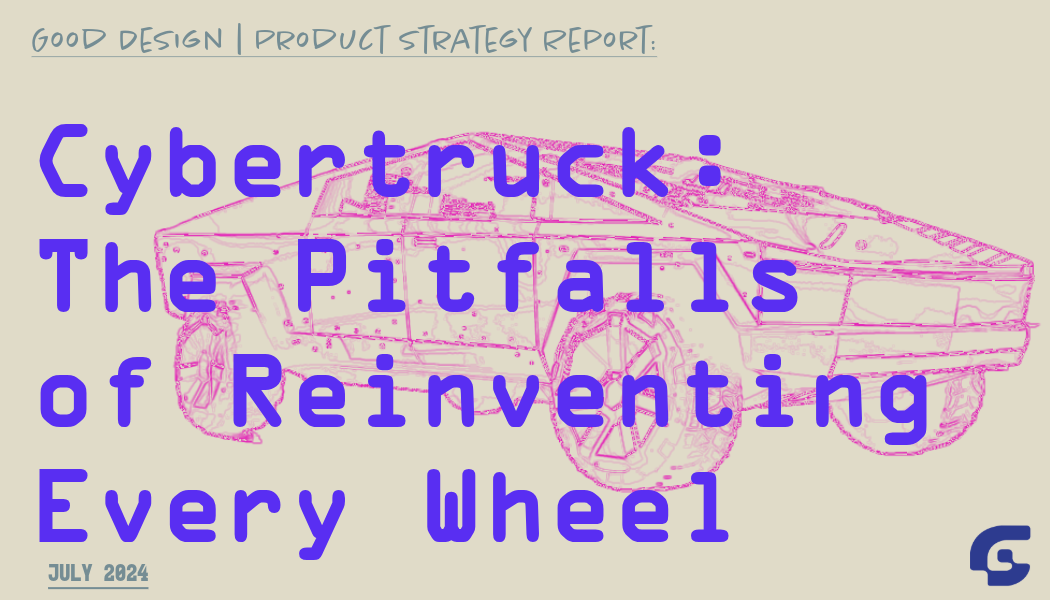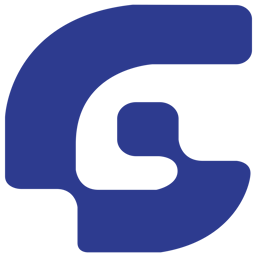Reimagining Product Strategy with the DVFU Framework
Good Ideas Only • 2024-02-22
The DVFU framework (Desirability, Viability, Feasibility, Usability) enhances traditional product strategy by incorporating usability as a critical element, ensuring that products not only meet market demands but are also user-friendly. In an evolving AI-driven landscape, continuous validation of all four dimensions is essential for achieving and maintaining product-market fit.
Product-market fit remains the holy grail of business success in today's hyper-competitive technology landscape. Yet, with 85% of new products failing to find their market, traditional approaches to product development need reimagining. The DVFU (Desirability, Viability, Feasibility, Usability) framework offers a comprehensive, particularly relevant solution in our AI-driven era.
The Evolution of Product Strategy
Product strategy traditionally relies on IDEO's DVF (Desirability, Viability, Feasibility) framework to guide innovation decisions. While DVF helps teams evaluate if a product is wanted, profitable, and buildable, today's digital-first environment demands more. The DVFU framework builds upon this foundation by explicitly incorporating Usability as a critical fourth dimension. This addition recognizes a fundamental truth: even desirable, viable, and feasible products will only succeed if users engage with them effectively.
DVFU serves as a high-level guide for meeting business objectives across different time horizons, ensuring that products not only solve the correct problems but do so in a way that users can quickly adopt. The framework demands that all four elements align – customers must want a product (Desirability), be sustainable as a business (Viability), be technically possible to create (Feasibility) and be effortless to use (Usability). When any dimension falls short, product-market fit remains elusive. This holistic approach transforms abstract strategic questions into actionable development guidelines, which are particularly crucial as organizations navigate the complexities of AI-driven innovation.
The DVFU Framework: A Systematic Approach
Desirability: Understanding User Needs
Desirability has become the primary gateway to product success in an age of abundant choice. Consider Airbnb's evolution: Airbnb's initial success stemmed from understanding travelers' desire for authentic, affordable experiences. However, by 2024, shifting customer preferences and rising prices have forced them to reevaluate their value proposition.
Viability: Ensuring Sustainable Growth
Viability extends beyond simple profitability to encompass sustainable business models. The cautionary tale of Hertz's $4 billion Tesla investment in 2022 demonstrates the importance of thorough viability assessment. Despite intense market interest in EVs, Hertz underestimated operational costs and infrastructure requirements, leading to significant financial strain.
Feasibility: Technical and Operational Reality
Feasibility encompasses both technical capabilities and operational execution. The rise of autonomous vehicles illustrates this dimension's complexity. While companies like Cruise and Waymo have demonstrated technical feasibility, operational challenges in different weather conditions and regulatory environments remain significant.
Usability: The Critical Last Mile
Usability has emerged as a decisive factor in product success. Target's Circle 360 membership program exemplifies a strong usability focus and seamless integration across digital and physical shopping experiences. However, Bilt's credit card partnership with Wells Fargo shows how even strong usability cannot compensate for fundamental viability issues.
Modern Applications and Lessons
Recent case studies reveal key patterns in successful DVFU implementation:
- Continuous Evolution: Product-market fit is not static. Airbnb's ongoing challenges with pricing and regulation demonstrate the need for constant framework reapplication.
- Integrated Validation: Wells Fargo's experience with Bilt shows the importance of validating all four DVFU dimensions simultaneously, not in isolation.
- Systematic Testing: Target's approach to Circle 360 illustrates the value of systematic assumption testing across all DVFU dimensions before a full-scale launch.
The Path Forward
As we move deeper into the AI era, the DVFU framework becomes even more critical. Successful product strategies will require the following:
- Regular revalidation of all DVFU dimensions as market conditions evolve
- Integration of AI capabilities across all framework components
- Balanced consideration of human factors and technological possibilities
- Systematic testing of assumptions before significant investments
Conclusion
The DVFU framework, with its structured and practical approach, is a valuable tool for modern product strategy in today's rapidly evolving technology landscape. Organizations can significantly improve their odds of achieving and maintaining product-market fit by systematically addressing desirability, viability, feasibility, and usability.
About the Author
Tam Danier is the Managing Director of Good Ideas Only (GIO), a premier product strategy consultancy specializing in AI-enabled innovation. With over a decade of cross-disciplinary expertise spanning startups, enterprises, and Big 4 consulting, Tam has a proven track record of helping organizations leverage AI to design and deliver transformative products and services. Her experience includes working with industry leaders like Apple, Twitter, and Deloitte, where she's helped teams navigate the complexities of modern product development.
GIO offers specialized consulting and training in the DVFU framework, helping organizations build internal capability while delivering immediate results. For more information about working with GIO or upcoming DVFU framework training sessions, visit www.goodideasonly.design.
The GIO Team
About The Good Design | Center of Excellence Newsletter
For digital leaders aiming to drive growth through human-centric innovation, the Good Design Center of Excellence newsletter offers an inside look at GIO's approach. Through digestible videos and articles, you'll gain strategic insights to bridge the gap between vision and execution.







